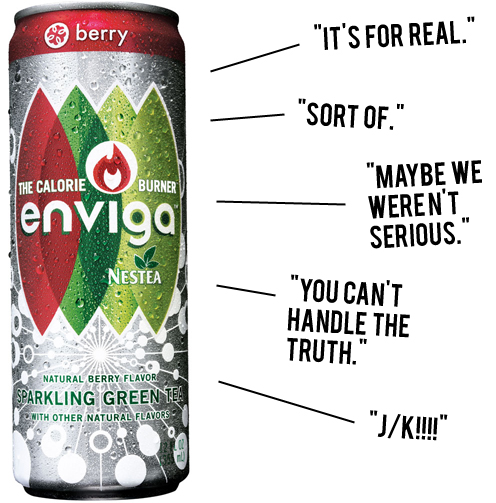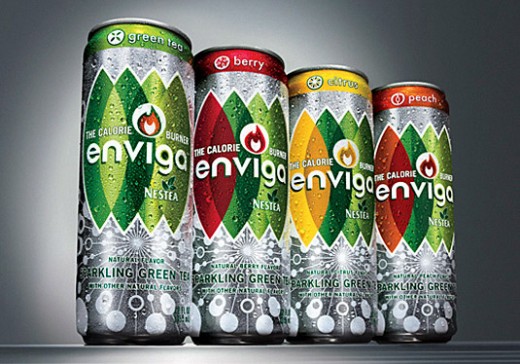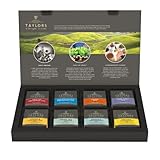Enviga Energy Drink
In 2006, Coke and Nestle introduced a new beverage drink that claims to have negative calories that could aid in weight loss by combining green tea extract and caffeine (Coca-Cola Company). In a study conducted by Nestle on Enviga, results have shown that drinking three cans of Enviga everyday will help a healthy normal person burn about 106 calories daily (Rudelle, et al., 2007). However, in 2007, when the proponents of Enviga released its product on the market, it was welcomed with lawsuits from different consumer groups claiming that the advertising pitch for Enviga—as a weight loss aid is unfounded and misleading (Huffman, 2006; Helm, 2007; & Center for Science in the Public Interest, 2007).

What Made Coke’s Research Study Invalid
The Lawsuits against Coke and Nestle (Helm, 2007; & Center for Science in the Public Interest, 2007) stem from the fact that their research study (Rudelle, et al., 2007) is considered to be inadequate or invalid in terms of the efficacy of their product vis-à-vis their claim for a number of flaws on how the research was undertaken. For one, the research design is flawed because its participants consist only of 32 “non-smoking, moderately active, healthy, young subjects between 18 and 35 years” participants (Rudelle, et al., 2007) which are not an adequate representation of the varied consumers across the US and possibly around the globe who would purchase Enviga. Second, the time frame is very short—the whole experiment took about 3-days, which is not enough time to establish the long-term effect of regular consumption of Enviga. Third, the study was conducted in a controlled environment, in a laboratory, that disregards other variables of day-to-day activities that could have significant effects on the study results. And lastly, the experiment is funded and conducted by the companies who manufactured Enviga which beg the ethical obvious question of conflict of interests.

Health-TEA alternatives
Measurement Instrument
Metabolic measurement was used in the research as a numeric measurement data gathering method. Interpreting and analyzing the statistical findings were then used to interpret the results of the study. Furthermore, the researchers also used the research study conducted by a Japanese Tea Company to reinforce and validate their findings on the effect of Green Tea Extract and ECGC (Rudelle, et al., 2007). The research made use of two measuring instruments—time and energy. However, it is only the reliance or lack of, on these two variables that invalidates or renders the research invalid. There are other variables that could have been incorporated but were disregarded on the duration of the research.
The Coke Study
It is obvious that The Coca-Cola Company and Nestle was profit-driven when it conducted the ‘research’ on Enviga. The company was clearly biased even before the start of the research because it already has a desired outcome in mind. They probably believed that if their claims are backed by a (pseudo) scientific study, then their product would appear more credible in the public. And with obesity level in the US hitting an all-time high, the company would surely be able to tap on a huge percentage of consumers who desires to reduce weight.
References
Center for Science in the Public Interest. (2007, February 1). Watchdog Group Sues Coke, Nestle For Bogus "Enviga" Claims. Retrieved September 21, 2010, from Center for Science in the Public Interest: http://cspinet.org/new/200702011.html
Coca-Cola Company. (n.d.). Benefits. Retrieved September 21, 2010, from Enviga Web site: http://enviga.com/#Benefits
Helm, B. (2007, February 1). Coke and Nestle Hit with a Lawsuit for "Negative Calories". Retrieved September 21, 2010, from Bloomberg Businessweek: http://www.businessweek.com/the_thread/brandnewday/archives/2007/02/negative_calori.html
Huffman, M. (2006, February 1). Coke, Nestle Sued Over Enviga Claims. Retrieved September 21, 2010, from ConsumerAffairs.com: http://consumeraffairs.com/news04/2007/02/cspi_coke_suit.html
Rudelle, S., Ferruzzi, M. G., Cristiani, I., Moulin, J., Mace, K., Acheson, K. J., et al. (2007). Effect of a Thermogenic Beverage on 24-Hour Energy Metabolism in Humans. Obesity , 15 (2), 349-355.
SHOP JEWELRY ONLINE
- Excelsior Handcrafted Jewelry
Shop handcrafted, affordable, and unique jewelry online. Like our Facebook page to get updates on special offers and discounts









